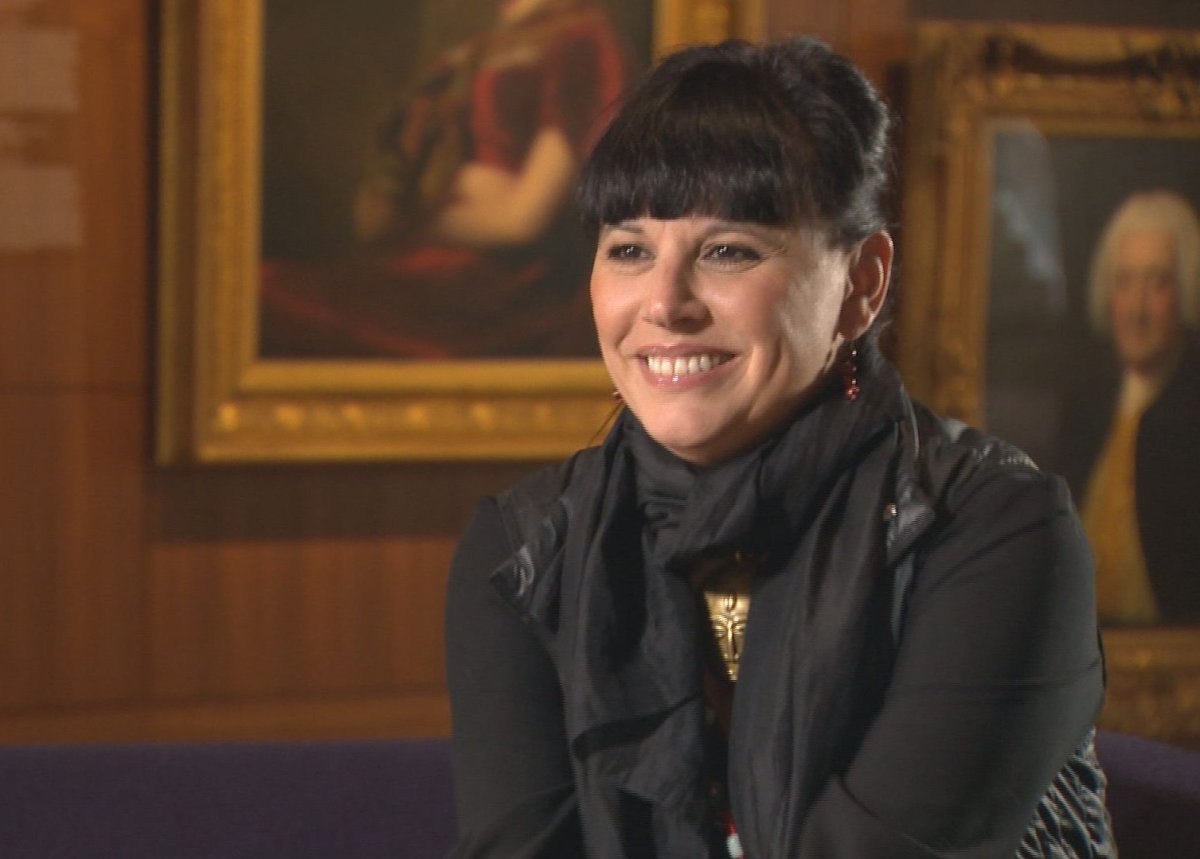Nathalie Bondil is the director general and chief curator at Montreal’s Museum of Fine Arts.

Throughout her career, Bondil has devoted her time and efforts to making the art world accessible to all museum-goers and city-dwellers.
Bondil spoke with Global News about the past decade, redefining museums and what comes next for Montreal’s innovative and growing art scene.
Global News: What were you doing in 2010?
Nathalie Bondil: It was the 150th anniversary of the MMFA, highlighted by great donations. Jumping from one project to the other, I was presenting some innovative exhibitions: Otto Dix, Miles Davis, Tiffany Glass, Denis Gagnon and Jean-Paul Gaultier. I was travelling through archeological sites in northern Peru for our future show and also working on the new Bourgie Pavilion for Quebec and Canadian Art with its beautiful concert hall.
A decade later, these projects had become incredible successes, with the world tour of Gaultier, great new spaces for our permanent collections and hundreds of concerts thanks to our Arte Musica foundation. In 2010, I also launched the very first Education Committee at the MMFA, calling on a new friend of mine, Michel de la Chenelière, to head the board.
GN: How were you hoping things might shape up in Quebec’s art community over the decade?
NB: Supporting humanist values through art and museology was the mission: education, peace, togetherness and well-being. I have always been convinced of the museum’s major role as a vector of social progress: my vision sought to redefine the role of a museum in society. It was rather unusual.
GN: Were you right or wrong? If you were wrong, how so?
NB: Not only did I think that it was the right thing to do when we consider our world nowadays with so many tensions and divisions — the art world is much more engaged now, and that is wonderful — but also, our innovative actions have recently been brought into the limelight by the OECD and ICOM in their latest international study: Culture and Local Development: Maximising the Impact. Guide for Local Governments, Communities and Museums. This validation by international economic and cultural institutions enables us to promulgate our message and strengthen the role of culture.
GN: What is the single biggest change that has happened in your line of work over the past decade that has been a game changer?

Get daily National news
NB: The impact of social media, for the best (more ethics with sponsors, sponsoring, more visibility for diversity) and the worst (calls for censorship, lack of debate). These changes reflect our 21st century, with the new multi-polar world empowering struggling minorities and Indigenous voices, seeking gender parity and above all, tackling environmental challenges.
GN: What has been your biggest win?
NB: Redefining museums as keys to inclusion and greater health, well-being and pride, and so to economic development and building a more peaceful society. Culture is related to various mandates, such as education, family, immigration and health, not just heritage, economics, infrastructure and tourism.

GN: What has been your biggest disappointment or miss? What did you learn from it?
NB: We all share various destinies, but we all have the same destination. Time flies, doesn’t it?
GN: What was the biggest story of the last decade in Montreal and Quebec’s arts community? Why?
NB: In 2018, the Slav and Kanata controversies testified to the philosophical differences between French, Quebec, Francophone versus Canadian, Anglophone and even American perspectives about freedom of expression, safe space, cultural appropriation and diversity claims: It was an earthquake of collective consciences. Nothing can be done in the same way as before and after, even though I am convinced that a healthy democracy is the deep organization of this complexity: more than ever, each of us needs to support debate, dialogue and exchanges as opposed to maintaining sterile or intimidating positions.
GN: How has the makeup of Montreal’s arts community changed over the last decade? How does this drive your decisions?
NB: In our increasingly hybrid society, tolerance is not a contemplative position: it is a dynamic attitude that comprises foresight, understanding and the promotion of acceptable solutions. Montreal receives most of the province’s immigrants.
Our cosmopolitan city grows by incorporating external forces and making them its own. Migrants fuel this hub of creativity. Learning to live together in peace is propelled through cultural exchange.
GN: What’s your biggest hope for the city and arts community for 2020-2030?
NB: Aesthetic pleasure is … anything but a trivial business: it is an integral part of our healthy animality. Over and above developing cognitive and intellectual knowledge, it is equally important to create a “school for the senses.” It is what distinguishes humans from robots, our emotional intelligence from artificial intelligence. This field of research is expanding day by day in the new century, and it is exciting to see the humanities link up with science.
I am convinced that in our century, culture will be to health what sports were to it in the 20th century. I would remind skeptics that only a century ago it was believed that sports could deform the body and harm women’s fertility! I am convinced that cultural experiences will be understood to contribute to well-being, the same way that sports improve physical conditioning.

GN: What is the biggest challenge facing your community over the next decade?
NB: I am persuaded aesthetics could play a major role in understanding between human beings. When stereotypes, rumours and manipulations build up in the incessant social media chatter, contributing to the serenity of our society becomes part of our mission. Culture mobilizes our debates in this new intercultural era. We are now in an era when people will have to understand those who do not resemble them. The cohabitation of cultures has never come about so rapidly, hence the necessity of thinking of the world as a whole.
I am convinced that museums are a tool of cultural diplomacy. Some people would sooner cite ecology and biodiversity, education and living together in harmony, local economy and globalization, participatory democracy and sustainable development. However, culture deals with these issues as well. We are in a global age when all humanity shares a common destiny. Creating unity among the human species while respecting its diversity is a basic idea but also a future-forward one.
GN: And just for fun…Do you think the Habs will win a Stanley Cup in the next decade?
NB: We must fight for our dream … always.






Comments